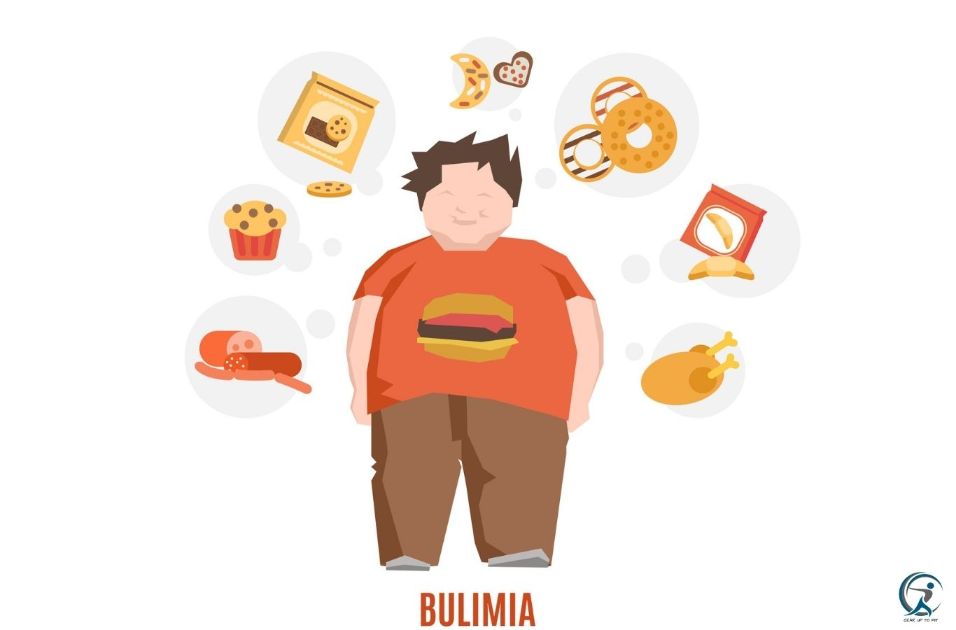Feeling out of control with food? Binge eating disorder (BED) is real, but so is recovery! This guide gives you the keys to healthy eating habits and emotional coping skills to finally ditch the binges and build a happy relationship with food.
BED recovery involves healthy eating habits and managing emotional triggers. This guide teaches you meal planning, identifying triggers, and developing coping mechanisms to manage BED effectively.
Key Takeaways:
-
Outsmart Triggers: Discover what makes you overeat and develop ninja coping skills!
-
Fuel Your Body Right: Ditch hanger with a meal plan that keeps you satisfied.
-
Feel Better, Eat Better: Learn healthy ways to manage stress so food chills out, not you!
Understand The Condition of Binge Eating Disorder
Help Others Overcome Binge Eating Disorder

About 30 million people in America have binge eating disorder. You likely know someone who struggles with it. Many people misunderstand binge eating disorder and how to beat it. Due to these misconceptions, many don’t seek the help they need.
If you or someone close has binge eating disorder, it’s time to act. Here are tips to help overcome binge eating disorder and lead a healthier life.
The first step is to acknowledge there’s a problem. People with this disorder often avoid talking about it. They try to dodge getting help. Friends and family usually notice their struggle but aren’t sure how to help.
Join A Support Group
Professionals, friends, and family offer great support. Yet, they might have strong opinions on managing your intuitive eating disorder. Joining a support group for binge eating can help you share and learn from others facing the same issue.
Such groups can positively influence your life. However, their advice might not always fit your specific situation. Remember, there’s no single way to overcome binge eating disorder. It’s about finding what works for you.
To find the right support group, try attending various meetings with different people. Support groups aim to foster your independence and creativity in managing the disorder. If a meeting doesn’t feel right, don’t hesitate to seek help.
Consider Medical Treatment
Binge eating disorder can be a mental issue. It is not a physical condition. Cognitive behavioral therapy is often used to treat binge eating disorders. This can help you recognize destructive thought patterns and behaviors that lead to binging. To help with your cravings, your doctor might prescribe antidepressants and anti-anxiety medication in combination with therapy for extreme binge eating.
Professional treatment is recommended if your binge-eating disorder is causing you distress and disrupts your daily life. Working with a therapist or doctor to treat a binge-eating disorder can be very effective. This is especially true if medical intervention is required.
Discuss all options with your doctor to determine which one is best for you. Although diet and lifestyle changes can be helpful for those with disordered eating disorders, there are no universal solutions. Each person will need to be treated individually. Some people might need more support in changing their destructive thoughts and behaviors. Others may be better suited to taking antidepressants or other medications.
Get Active
It’s easy to eat too much when sitting on your couch. On days you overeat, go for a walk outside or on a treadmill. Enjoy nature and clear your mind before watching another episode of The Walking Dead. Doing any activity reduces stress and clears your mind. Plus, you burn calories.
Use a pedometer to measure how much you walk. Aim to increase your steps by 10 percent each week. If you walk 3,000 steps a day now, try for 3,300 next week. Start with small goals and gradually increase them. Trying to walk a lot right away can lead to injuries.
Set realistic fitness goals. If you haven’t exercised since high school, don’t aim to run a marathon right away. Start with something small. For example, jog one mile a day and add a mile each week until you reach 5 miles. Or, start with 10 pushups in two weeks, then go for 15 in another two weeks.
Keep track of your progress. This will help motivate you to set and reach higher goals. But don’t push yourself too hard. Rest enough between workouts. If you’re over 35 or not in good shape, talk to your doctor before starting a new exercise plan. The most important thing is to find what works best for you!
Create Healthy Boundaries
Boundaries help keep your mind healthy, especially when it involves how much you eat. To beat binge eating disorder, you need to know how much food is okay for you in one sitting. This keeps you from overeating during stressful times. It also boosts your self-esteem and mental health.
Be true to yourself about how much food is healthy for you. Reflect on past binge eating moments. Think about your body type, health conditions, or any special circumstances that affect your food intake. Finding the right amount may need some experimenting.
If you’re looking to lose weight but unsure how to start, consider Weight Watchers. It offers support groups, healthy eating tips, and personal coaching. This can be very helpful for dealing with binge eating. You’ll meet with a coach each week to discuss your goals.
Don’t Keep Hidden Foods In The House

If you’re trying to overcome a binge eating disorder, start by doing a thorough clean-out of your fridge and pantry. Try to avoid keeping foods around that might trigger bingeing. Also, be sure not to keep any trigger foods in your house. If you try binging on food and don’t succeed, then you’ll be more likely to reach for those unhealthy options later on.
If you have a list of trigger foods, avoid keeping those items in your house. Keep track of these foods on your phone so that you can always be prepared to shop for healthier options. Food tracking apps are also a great way to control binge eating disorders. If you keep yourself aware of what’s being consumed, it’s more difficult to overeat and binge.
Avoid going grocery shopping when hungry. Also, make sure to keep your purchases in check so you don’t buy impulse items. If you have a list that includes unhealthy foods that trigger binging episodes, you should avoid buying them. If all else fails you can hire a professional organizer for help with getting rid of unhealthy food from your home.
Manage Stress Well
Stress is a major cause of binge eating. Binge eating is often used as a way to cope with stress. Because of this, managing stress is crucial to prevent binge eating. Here are four simple ways to manage your stress effectively.
Here are four simple and easy ways to do that
1) Practice mindfulness;
2) Manage your time wisely
3) Get plenty of sleep
4) Limit alcohol intake.
In conjunction with therapy and medication (if needed), these strategies will help reduce binge eating in no time!
Practice mindful eating
Mindfulness means focusing on your feelings, thoughts, and sensations right now without judgment (Kabat-Zinn). It helps you see how you react to stress. Over time, you’ll recognize what sets off your stress. This can help you avoid these triggers. So, when you’re stressed, instead of eating for comfort, you might call a friend, take a walk, or read a good book.
Food Addiction
Food Addiction involves consuming large amounts of food quickly and feeling unable to stop. It differs from binge eating disorder, where individuals eat excessively in one sitting and then feel guilty.
Both conditions stem from similar causes, like genetics, stress, and an unhealthy diet. Yet, their treatments vary greatly. For instance, detoxification may be necessary for those with food addiction before tackling the root problems.
Bulimia nervosa

Binge eating disorder involves episodes where a person can’t control their eating. Afterward, they feel guilty, ashamed, and disgusted. People with this disorder often can’t control themselves while eating. They may try to get rid of the food by vomiting or using laxatives. Bulimia nervosa also involves episodes of eating too much. But, people with bulimia try to make up for it by vomiting on purpose, fasting, exercising too much, or using water pills. Both disorders cause a lot of distress and make daily functioning difficult.
Emotional eating and Binge Eating Disorder
We all reach for comfort food sometimes. But what if those “sometimes” turn into giant “all-the-time” binges that leave you feeling awful? That could be Binge Eating Disorder (BED), but don’t panic! BED is different from normal stress-eating. Here’s the quick scoop:
-
Stress-Eating: You munch a pint after a bad day, but portions are okay and you’re still in control.
-
Binge Eating Disorder (BED): It’s like a food black hole! You go in for a snack and suddenly the whole box is gone. You feel stuffed and guilty, but you can’t seem to stop.
If emotional eating is too much to handle, getting help from a therapist or dietitian can stop the binge eating. They can also help you create a healthy relationship with food.
The Diagnostic and Statistical Manual of Mental Disorders (DSM-5) describes binge eating disorder as having repeated binge eating episodes with feelings of distress during those times. This means if eating makes you feel distressed, you probably have binge eating disorder.
What Causes Binge Eating?

Binge eating disorder (BED) has many causes: genetics, emotional stress, unhealthy dieting, brain chemistry, and even past traumas. It’s not your fault, but help is available. Talk to a therapist or dietitian for recovery!
Take Care Of Yourself Physically & Mentally
It may seem obvious, but staying healthy is essential. If you’re feeling tired or stressed, bingeing might be a sign of deeper problems. Take good care of yourself. Ensure you get enough sleep and eat healthy meals consistently. Regular meetings with friends can provide an honest perspective on your life. Consulting a mental health professional is also a good idea if you suspect unresolved issues.
Be open with them. Even if they assure you everything is okay, believe that things can improve. Use your bingeing as a reason to better your life. See it as a push towards reaching your goals!
Start Small With One Goal And Build On It!
Binge eaters often try to set many high goals to improve. But, this approach usually leads to failure. Research indicates that breaking down a big goal, like losing 50 pounds, into smaller goals, such as losing 5 pounds at a time, increases success. It’s best to set one goal each week and focus on achieving it. This method will help you get in shape and lose weight more quickly.FAQs
What are some strategies to overcome binge eating disorder?
Strategies include therapy, medications, self-care habits, and dietary changes. It’s essential to seek professional help for personalized treatment plans.
Can you recover from binge eating disorder on your own?
While self-help strategies can aid recovery, professional assistance from therapists or nutritionists is highly recommended for comprehensive treatment.
How long does it take to overcome binge eating disorder?
Recovery time varies for each individual. Consistent therapy and support can lead to significant improvement over several months.
Are there specific diets to help overcome binge eating disorder?
There’s no specific diet, but balanced, nutritious meals help. Avoiding strict diets can prevent triggering binges. Consult a nutritionist for personalized advice.
How can family and friends support someone with binge eating disorder?
Support can include understanding the disorder, avoiding diet-talk, encouraging professional help, and offering emotional support through recovery.
Conclusion
We’ve explored the complex world of binge eating disorder, touching on its science, treatment options, and self-help tips. Overcoming this disorder may seem hard, like resisting a slice of pizza at 2 AM. But every journey starts with a small step.
Overcoming binge eating disorder is challenging but achievable. With professional support, self-care, and changes in lifestyle, you can regain control.
As we conclude, you might feel overwhelmed, like after a big Thanksgiving meal. But take it slow. Enjoy each small success.
Your mission is to start your journey. Ask for help. You’re not fighting this alone. Many have succeeded before you.
Let’s begin our journey towards beating binge eating disorder. Take it one day and one meal at a time. You are stronger than the urge to raid the fridge at night.
Ready for this delicious journey to wellness? Take the first step and overcome your binge eating disorder today! You’ve got this!
Resources
-
The National Eating Disorders Association (NEDA): 1-800-931-2237
-
The Binge Eating Disorder Association (BEDA): 1-855-846-2332
-
The National Association of Anorexia Nervosa and Associated Disorders (ANAD): 1-847-831-3438
Alex is a fitness aficionado, empowers others towards healthier, active lives through small, sustainable changes for lasting results. Visit Gearuptofit.com for insightful tips and resources to enrich a balanced lifestyle.
